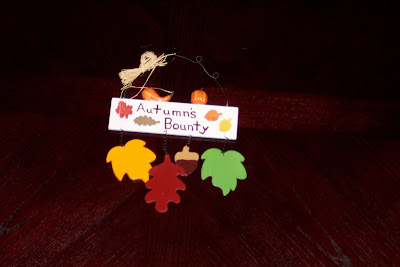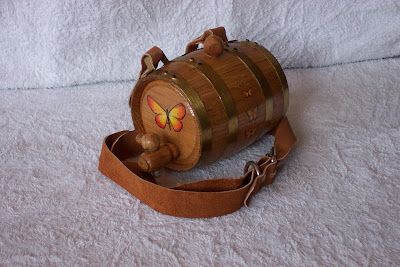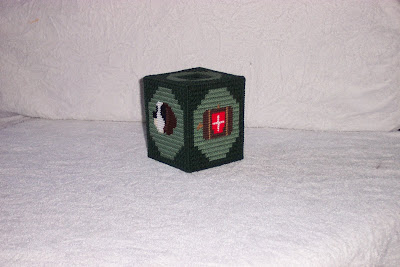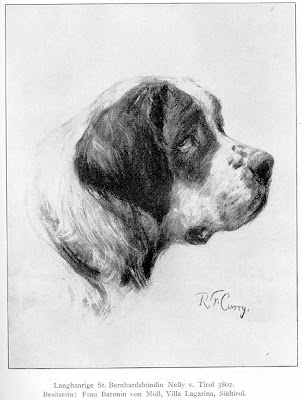Tuesday, August 31, 2010
Responsible Dog Ownership Days
The month of September has been designated as Responsible Dog Ownership Days by AKC. 2010 marks the 10th year for this event. Local clubs and organization host events all across the United States. The flagship event will be held in Raleigh, North Carolina, on September 25, 2010. If you would like more information regarding Responsible Dog Ownership Days you can contact Stephanie Smith at (212)696-8228 or email Communications@akc.org.
Monday, August 30, 2010
Sunday, August 29, 2010
Saturday, August 28, 2010
Saint Bernard Specialty Show In Kansas
The Heart of America Saint Bernard Club will host another Saint Bernard Specialty Show today. Mr. Jack A. Mulligan will be the Judge for this event. The location is Kansas Expocentre, One Expocentre Drive, Topeka, Kansas. Good luck to everyone entered in this event from Brandykegs Saint Bernards.
Friday, August 27, 2010
Saint Bernard Specialty Show
The Heart of America Saint Bernard Club, Inc., will be hosting a Saint Bernard Specialty Show today at Kansas Expocentre, One Expocentre Drive, Topeka, Kansas. Mrs. Beverly M. Nosiglia will be the Judge. The Heart of America Specialty Shows are part of a Cluster of All Breed Shows: Jesse James Kennel Club, Topeka Kennel Club and Manhattan Kansas Kennel Club. Brandykegs Saint Bernard would like to wish the best of luck to all the exhibitors.
Thursday, August 26, 2010
Wednesday, August 25, 2010
Working Dog Group
These breeds are part of the Working Dog Group:
SAINT BERNARDS
AKITA
ALASKAN MALAMUTE
ANATOLIAN SHEPHERD DOG
BERNESE MOUNTAIN DOG
BLACK RUSSIAN TERRIER
BOXER
BULL MASTIFF
CANE CORSO
DOBERMAN PINSCHER
DOGUE DU BORDEAUX
GERMAN PINSCHER
GIANT SCHNAUSER
GREAT DANE
GREAT PYRENEES
GREATER SWISS MOUNTAIN DOG
KOMONDOR
KUVASZ
LEONBERGER
MASTIFF
NEAPOLITAN MASTIFF
NEWFOUNLAND
PORTUGUESE WATER DOG
ROTTWEILER
SAMOYED
SIBERIAN HUSKY
STANDARD SCHNAUZER
TIBETAN MASTIFF
SAINT BERNARDS
AKITA
ALASKAN MALAMUTE
ANATOLIAN SHEPHERD DOG
BERNESE MOUNTAIN DOG
BLACK RUSSIAN TERRIER
BOXER
BULL MASTIFF
CANE CORSO
DOBERMAN PINSCHER
DOGUE DU BORDEAUX
GERMAN PINSCHER
GIANT SCHNAUSER
GREAT DANE
GREAT PYRENEES
GREATER SWISS MOUNTAIN DOG
KOMONDOR
KUVASZ
LEONBERGER
MASTIFF
NEAPOLITAN MASTIFF
NEWFOUNLAND
PORTUGUESE WATER DOG
ROTTWEILER
SAMOYED
SIBERIAN HUSKY
STANDARD SCHNAUZER
TIBETAN MASTIFF
Tuesday, August 24, 2010
Grooming Dogs
Grooming our dogs is very important. We should regularly brush, bathe, trim nails, clean ears, clean eyes, brush teeth, and check anal sacs.
Brushing should be done often. Make sure you use the correct type of brush for grooming. There are pin brushes, bristle brushes, slickers, curry combs, rakes, etc. Do some research and find out what will work best for your dog's hair type.
Regular bathing is very important especially if your dog spends most of their time in your home. Use mild shampoos for bathing your dog. If you can have access to warm water for bathing that is beneficial. Always plan to spend more time rinsing your dog that soaping. It is very important to remove all traces of the soap from your dog's coat and skin.
Regularly trim your dog's nails. Nails should be kept short or they can interfere with your dog's gait.
Your dog's ear need to be cleaned at least once a month, some dogs that are prone to ear infections benefit from weekly ear clearning. Use cotton balls or a soft cloth for ear cleaning, be gentle.
Be gentle when you clean your dog's eyes as well. A soft tissue can be used to gently wipe discharge from the inside corner of your dog's eyes.
Your dog's teeth should be cleaned a couple times a week (more often with some dogs). You can use a dog toothbrush, a soft cloth, or your finger. Baking soda is great for cleaning your dog's teeth. Take a small amount of baking soda, add just enough water to make a paste, then apply to your dog's teeth.
Check the anal sacs. If your dog is scooting around after a bowel movement, they may have an impacted anal sac. See your veterinarian for treatment.
Brushing should be done often. Make sure you use the correct type of brush for grooming. There are pin brushes, bristle brushes, slickers, curry combs, rakes, etc. Do some research and find out what will work best for your dog's hair type.
Regular bathing is very important especially if your dog spends most of their time in your home. Use mild shampoos for bathing your dog. If you can have access to warm water for bathing that is beneficial. Always plan to spend more time rinsing your dog that soaping. It is very important to remove all traces of the soap from your dog's coat and skin.
Regularly trim your dog's nails. Nails should be kept short or they can interfere with your dog's gait.
Your dog's ear need to be cleaned at least once a month, some dogs that are prone to ear infections benefit from weekly ear clearning. Use cotton balls or a soft cloth for ear cleaning, be gentle.
Be gentle when you clean your dog's eyes as well. A soft tissue can be used to gently wipe discharge from the inside corner of your dog's eyes.
Your dog's teeth should be cleaned a couple times a week (more often with some dogs). You can use a dog toothbrush, a soft cloth, or your finger. Baking soda is great for cleaning your dog's teeth. Take a small amount of baking soda, add just enough water to make a paste, then apply to your dog's teeth.
Check the anal sacs. If your dog is scooting around after a bowel movement, they may have an impacted anal sac. See your veterinarian for treatment.
Monday, August 23, 2010
External Parasites That Affect Dogs
These are common external parasites that affect dogs; fleas, ticks, lice, mites, and mosquitoes.
Fleas are a very common external parasite for dogs. They can make your dog's life miserable, and your family's as well. Keep in mind that if your dog has fleas then your home has fleas. You have to be very diligent with flea control. See your veterinarian for products to keep this parasite controlled.
Ticks can cause serious illness for your dog, like Rocky Mountain spotted fever and Lyme disease. If your dog spends a lot of time outdoors where ticks thrive, you should check your dog frequently for ticks. Ticks attach themselves to your dogs skin. It is very important to remove the tick when you find them. You will need a pair of tweezers to remove the tick. It is important to firmly grasp the body of the tick and pull it straight out from your dog's skin.
Lice and mites are tiny organisms that feed on your dog's skin. They can cause hair loss, intense itching, and infection. Keeping your dog's environment clean and your dog groomed go a long way in fighting this external parasite.
Mosquitoes and flies can be a real annoyance for your dog. Mosquitoes are attracted to heat and we all know that the average body temperature for our dogs is quite warm.
Fleas are a very common external parasite for dogs. They can make your dog's life miserable, and your family's as well. Keep in mind that if your dog has fleas then your home has fleas. You have to be very diligent with flea control. See your veterinarian for products to keep this parasite controlled.
Ticks can cause serious illness for your dog, like Rocky Mountain spotted fever and Lyme disease. If your dog spends a lot of time outdoors where ticks thrive, you should check your dog frequently for ticks. Ticks attach themselves to your dogs skin. It is very important to remove the tick when you find them. You will need a pair of tweezers to remove the tick. It is important to firmly grasp the body of the tick and pull it straight out from your dog's skin.
Lice and mites are tiny organisms that feed on your dog's skin. They can cause hair loss, intense itching, and infection. Keeping your dog's environment clean and your dog groomed go a long way in fighting this external parasite.
Mosquitoes and flies can be a real annoyance for your dog. Mosquitoes are attracted to heat and we all know that the average body temperature for our dogs is quite warm.
Sunday, August 22, 2010
Internal Parasites That Affect Dogs
There are five common internal parasites that affect dogs. They are hookworms, round worms, whip worms, tape worms, and heart worms.
Hookworms are most often found in puppies, but dogs of any age can be infected. Puppies can get hookworms from their mom's milk. It is important to keep a clean environment for your puppies and dogs. Your veterinarian can detect this parasite with a stool sample.
Round worms are also common in puppies, but dogs and children can also be infected. Round worms resemble strips of spaghetti. They can be detected in stool samples by your veterinarian.
Whip worms occur by puppies or dogs licking or sniffing ground infected with the parasite.
Whipworms live in your puppies/dogs intestine. Your veterinarian can detect this parasite with a stool sample.
Tape worms can cause your puppies/dogs to lose weight or have diarrhea. You can see tape worms in your puppies/dog's stool; they look like pieces of rice. Tape worms occur many times when your puppies/dogs are badly infected with fleas.
Heart worms infect your puppies/dogs when they are bitten by a infected mosquito (the infection is entered into their bloodstream). The heart worm matures in your dog's heart and can grow to twelve inches long. The heart worm actually clogs the heart. Your veterinarian can take a blood sample to determine if your dog is infected.
Hookworms are most often found in puppies, but dogs of any age can be infected. Puppies can get hookworms from their mom's milk. It is important to keep a clean environment for your puppies and dogs. Your veterinarian can detect this parasite with a stool sample.
Round worms are also common in puppies, but dogs and children can also be infected. Round worms resemble strips of spaghetti. They can be detected in stool samples by your veterinarian.
Whip worms occur by puppies or dogs licking or sniffing ground infected with the parasite.
Whipworms live in your puppies/dogs intestine. Your veterinarian can detect this parasite with a stool sample.
Tape worms can cause your puppies/dogs to lose weight or have diarrhea. You can see tape worms in your puppies/dog's stool; they look like pieces of rice. Tape worms occur many times when your puppies/dogs are badly infected with fleas.
Heart worms infect your puppies/dogs when they are bitten by a infected mosquito (the infection is entered into their bloodstream). The heart worm matures in your dog's heart and can grow to twelve inches long. The heart worm actually clogs the heart. Your veterinarian can take a blood sample to determine if your dog is infected.
Saturday, August 21, 2010
Saint Bernard Club of San Diego, Inc.
Are you looking for a Saint Bernard Club in Southern California? The Saint Bernard Club of San Diego, Inc., has been around since 1968. The Club has regular meetings and puts on a Saint Bernard Specialty Show in February each year for President's Day weekend. Visit their website for contact information. The Saint Bernard Club of San Diego, Inc., welcomes guests to attend their monthly meetings.
Friday, August 20, 2010
Thursday, August 19, 2010
Hand-crafted Items For Sale

BRANDYKEGS' Store has several hand-crafted items for you to purchase. Visit our store to view our products.
Wednesday, August 18, 2010
SBCA National Specialty
Entries for the SBCA National Specialty close at noon, Central Time, on Wednesday, September 8, 2010 at Foy Trent Dog Shows in Sturgeon, MO. Mail entries with fees to:
Foy Trent Dog Shows
PO Box C
Sturgeon, MO 65284
Entries can also be made online at www.foytrentdogshows.com you can also fax your entry at 888-685-8989.
Foy Trent Dog Shows
PO Box C
Sturgeon, MO 65284
Entries can also be made online at www.foytrentdogshows.com you can also fax your entry at 888-685-8989.
Tuesday, August 17, 2010
40th Saint Bernard Specialty Show
The Saint Bernard Club of Greater San Jose will be hosting it's 40th Saint Bernard Specialty Show in October. There will be five days with two Saint Bernard Specialties, and four All Breed Shows. This will be a great opportunity for your Saint Bernard to compete with several Saints. Remember these dates:
October 21, 2010 - Thursday All Breed Show hosted by Skyline Kennel Club
October 22, 2010 - Friday All Breed Show hosted by Skyline Kennel Club
October 23, 2010- Saturday (AM) St. Bernard Club of the Pacific Coast
October 23, 2010 - Saturday (PM) St. Bernard Club of Greater San Jose
October 24, 2010 - Sunday All Breed Show hosted by Del Valle Kennel Club
October 25, 2010 - Monday All Breed Show hosted by Del Valle Kennel Club
October 21, 2010 - Thursday All Breed Show hosted by Skyline Kennel Club
October 22, 2010 - Friday All Breed Show hosted by Skyline Kennel Club
October 23, 2010- Saturday (AM) St. Bernard Club of the Pacific Coast
October 23, 2010 - Saturday (PM) St. Bernard Club of Greater San Jose
October 24, 2010 - Sunday All Breed Show hosted by Del Valle Kennel Club
October 25, 2010 - Monday All Breed Show hosted by Del Valle Kennel Club
Monday, August 16, 2010
Saint Bernard Kennels in California
There are several Saint Bernard Kennels in California, here is the list from BRANDYKEGS, you can locate Saint Bernard Kennels in other states by visiting our links page.
Thunder Hill Saints
Subira Saint Bernards
Woodcrest Saint Bernard Dogs
Skydancer
Jamelle
Brock Ranch St. Bernards
Summerlyn Saints
Silvercrown Saints
Nor-Cal Saints
Saint of the Yukon
The Saints of Agonistes
Bear Creek Saints
St Cocker Kennels
Omar V Herman Kennels
Paragon Saint Bernards
Reema St. Bernards
Billie’s Home Page
Knollridge Farms
Howe Ranch Saint Bernards
Big Slobber Dog
BRANDYKEGS SAINT BERNARDS
Thunder Hill Saints
Subira Saint Bernards
Woodcrest Saint Bernard Dogs
Skydancer
Jamelle
Brock Ranch St. Bernards
Summerlyn Saints
Silvercrown Saints
Nor-Cal Saints
Saint of the Yukon
The Saints of Agonistes
Bear Creek Saints
St Cocker Kennels
Omar V Herman Kennels
Paragon Saint Bernards
Reema St. Bernards
Billie’s Home Page
Knollridge Farms
Howe Ranch Saint Bernards
Big Slobber Dog
BRANDYKEGS SAINT BERNARDS
Sunday, August 15, 2010
What is cherry eye?
Cherry eye is where the gland of the third eyelid prolapses or comes out of its normal position and swells. This probably occurs due to a weakness in the connective tissue that attaches the gland to the surrounding structure of the eye. Surgical replacement of the gland is the best choice for treatment and should be done early. In most cases antibiotics are not effective for correcting the problem.
Saturday, August 14, 2010
Do you know what pyometra is?
Pyometra is an infection in the uterus. The uterus is filled with a toxic pus. It usually occurs after a female has finished her heat cycle. It can occur at any age but happens more often in an older female. There are two types of pyometra; open and closed. The cervix is open and a purulent discharge is present with the more common type of open pyometra. In cases of the closed pyometra, the cervix is closed. In closed pyometra; there is no vaginal discharge, making diagnosis more difficult. The dog also becomes sicker because the toxic pus is kept inside the uterus. Some outward signs of the problem are lack of appetite, vomiting, excessive thirst, increase in urination, strong unpleasant odor and the purulent discharge (with the open pyometra type). Pyometra needs to be diagnosed and treated quickly, or the dog will die. In the past, spaying was the only form of treatment. Today a veterinarian can prescribe some antibiotics to get rid of the infection. If antibiotics are used and are successful in eliminating the problem; the female should be bred when her next heat cycle occurs.
Friday, August 13, 2010
Finding The Right Vet
Finding the right vet for you large breed dog is quite a challenge. I recommend taking the time to do some screening. The last thing you need is to have a vet assigned to you who is specialized in miniature breeds, this has actually happened to me. A couple of things to look for, examining rooms that have tables that can be lowered to the floor so your large dog can be placed on it and secured, then raised for an examination. It is also helpful if the scales they have for weighing pets are one they simply step up on. Take a tour of the facility, look at the examining rooms, the hospital area, and boarding facilities, find out if they do in-house lab work or if it is sent out. Check to see if they can do x-rays for large breeds. Find out which veterinarians are taking on more clients; arrange to talk with them briefly. You will want to know their operating hours. Are they open on weekends, what about holidays? Do they handle emergencies? It is important to find a veterinarian that you feel confident in their knowledge and experience and also that you feel comfortable with. Your pet’s reaction to them is a good barometer as to whether they are right for you as well.
Thursday, August 12, 2010
Should your dog enter a door before you?
Did you know that you should not let your dog enter a door or doorway ahead of you? You relinquish your alpha dog status by allowing them to enter before you. This is not a good idea; you want to keep your alpha status at all times. It may seem like a silly idea, however when you are dealing with any large breed dog you need to maintain the alpha status for yourself at all times.
Wednesday, August 11, 2010
Vaccination List for Dogs
BRANDYKEGS has a listing of common vaccinations given to dogs. This is just a list, you should always check with your own veterinarian as to what vaccinations they recommend for your puppy or dog.
Tuesday, August 10, 2010
Saint Bernards in Slovakia
Saint Bernards find homes all around our world. BRANDYKEGS has several international Saint Bernard Websites listed, check them out. Peter and Petra from Ördöghazi Kennel in Slovakia contacted me last week about adding their site to our listing. Here are some other Saint Bernard sites in Slovakia for you to look at:
Chovatet’ska’ stanica Od Sliacanky
Bernardin z Rubaniciek
Matlamon Bernardin
Lenkin dvor
sozlatouchviezdou
Jurastic Bernaros
Klub Chovatel’ov Svatobernardskych
Chovatelska stancia spod Pajstuna
Isten ostora Kennel
ÖRDöGHÁZI (NEW LISTING)
Chovatet’ska’ stanica Od Sliacanky
Bernardin z Rubaniciek
Matlamon Bernardin
Lenkin dvor
sozlatouchviezdou
Jurastic Bernaros
Klub Chovatel’ov Svatobernardskych
Chovatelska stancia spod Pajstuna
Isten ostora Kennel
ÖRDöGHÁZI (NEW LISTING)
Monday, August 9, 2010
Brandy Keg With Leather Strap
 You can purchase this brandy keg with adjustable leather strap for your dog at BRANDYKEGS' STORE. There are no additional charges at check out.
You can purchase this brandy keg with adjustable leather strap for your dog at BRANDYKEGS' STORE. There are no additional charges at check out. Sunday, August 8, 2010
Tissue Box Cover

Tissue box cover with Saint Bernard head and rescue barrel, background colors are sage and forest green. For information on purchasing go to BRANDYKEG'S STORE.
Saturday, August 7, 2010
Photo Frame With Sunflowers

You can purchase this attractive forest green with yellow sunflowers photo frame to hold one of your favorite photos at BRANDYKEGS' STORE. Shipping and handling are already included in the price, so there are no additional charges at check out.
Friday, August 6, 2010
St. Bernard Club of Alaska
The Saint Bernard Club of Alaska will be hosting a Saint Bernard Specialty Show today at, Alaska State Fairgrounds, 2075 Glenn Highway, Mile 40, Palmer, Alaska. The Judge for their Specialty Show is Anna May Fleischli Brown. Brandykegs Saint Bernards would like to wish all the exhibitors the best of luck.
Thursday, August 5, 2010
Wednesday, August 4, 2010
Drool Bibs For The Big Dog In Your Life

Drool Bibs For Large Breed Dogs
Visit Brandykegs' Store to purchase. Shipping/handling is included in the purchase price.
Tuesday, August 3, 2010
Dogs and Cars
Most dogs love to ride in cars, or maybe they just love to be with us. You often see dogs hanging outside windows, this really is not a good idea. There is a lot of debris flying around out there and you sure don't want it to get into their eyes and cause damage.
The safer place for your dog to be while riding in your vehicle, is inside a secured dog crate. There are also seatbelts made just for dogs, if your dog is well behaved these work nicely.
You really should not allow your dog to sit in your lap while you are driving, this is a huge distraction.
The safer place for your dog to be while riding in your vehicle, is inside a secured dog crate. There are also seatbelts made just for dogs, if your dog is well behaved these work nicely.
You really should not allow your dog to sit in your lap while you are driving, this is a huge distraction.
Monday, August 2, 2010
It's A Dog's Life
Dogs thrive in a structured environment. It might seem dull and humdrum to us, but they like the same routine day after day. They like to be fed at the same time every day, exercised same thing. Our dogs love their daily routine; it’s a dog’s life.
Sunday, August 1, 2010
Summertime Heat
It's August and the temperatures are hot. Remember to provide plenty of fresh water and shade for your dogs. If possible keep them inside and out of the heat. Exercise either early in the day or late in the day, whenever the outside temperature is cooler. It's a good idea to keep frozen ice packs around during the summer months, always be prepared for possible heat stroke. If you suspect your dog is experiencing heat stroke, use ice packs to help lower their body temperature. Seek help from your veterinarian with heat stroke immediately.
Subscribe to:
Posts (Atom)





